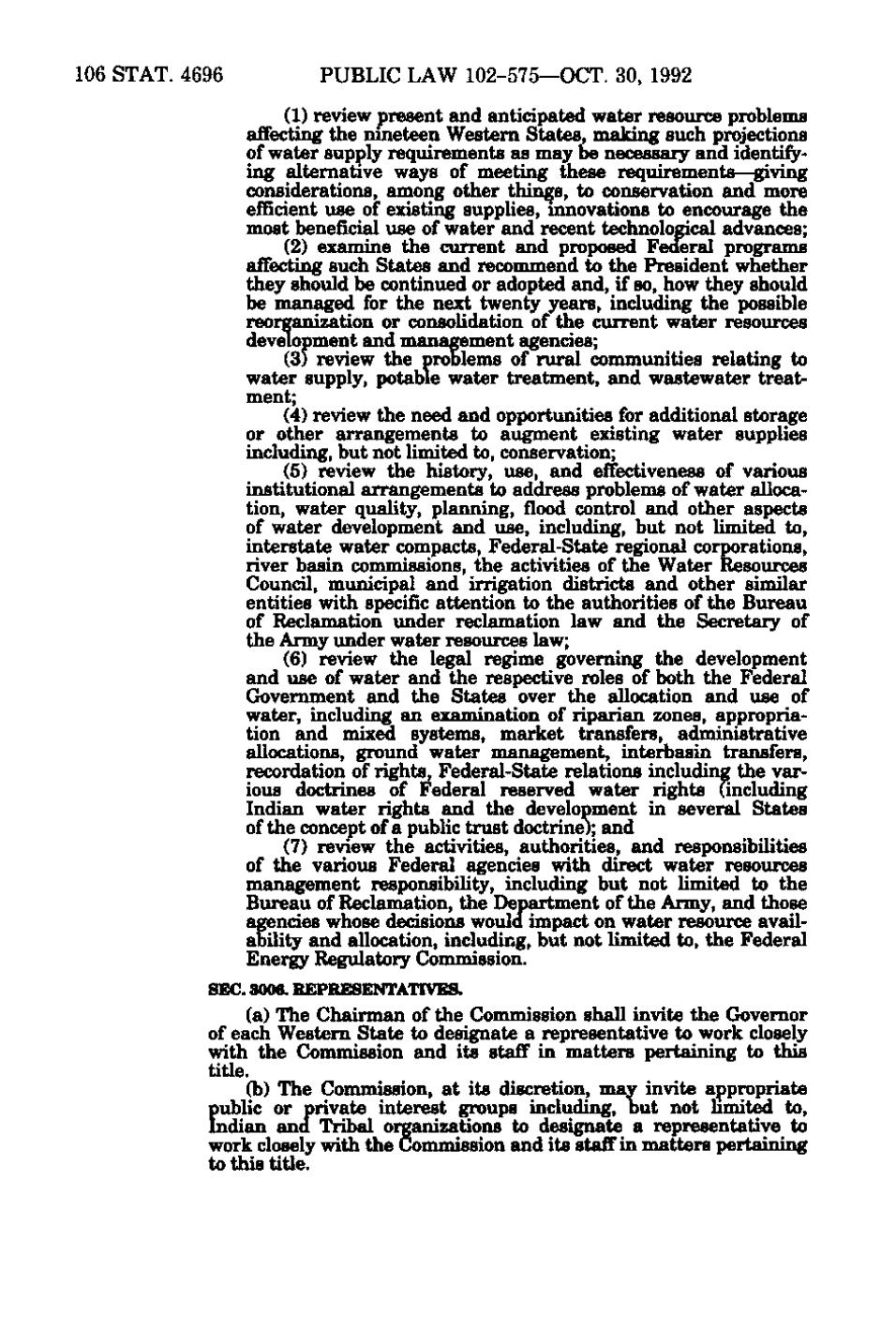106 STAT. 4696 PUBLIC LAW 102-575—OCT. 30, 1992 (1) review present and anticipated water resource problems affecting the nineteen Western States, making such projections of water supply requirements as may be necessary and identify- ing alternative ways of meeting these requirements—giving considerations, among other things, to conservation and more efi&cient use of existing supplies, innovations to encourage the most beneficial use of water and recent technological advances; (2) examine the current and proposed Federal programs affecting such States and recommend to the President whether they should be continued or adopted and, if so, how they should be managed for the next twenty years, including the possible reorganization or consolidation of the current water resources development and management agencies; (3) review the problems of rural communities relating to water supply, potable water treatment, and wastewater treatment; (4) review the need and opportunities for additional storage or other arrangements to augment existing water supplies including, but not limited to, conservation; (5) review the history, use, and effectiveness of various institutional arrangements to address problems of water allocation, water quality, planning, flood control and other aspects of water development and use, including, but not limited to, interstate water compacts, Federal-State regional corporations, river basin commissions, the activities of the Water Resources Council, municipal and irrigation districts and other similar entities with specific attention to the authorities of the Bureau of Reclamation under reclamation law and the Secretary of the Army under water resources law; (6) review the legal regime governing the development and use of water and the respective roles of both the Federal Government and the States over the allocation and use of water, including an examination of riparian zones, appropriation and mixed systems, market transfers, administrative allocations, ground water management, interbasin transfers, recordation of rights, Federal-State relations including the various doctrines of Federal reserved water rights (including Indian water rights and the development in several States of the concept of a public trust doctrine); and (7) review the activities, authorities, and responsibilities of the various Federal agencies with direct water resources management responsibility, including but not limited to the Bureau of Reclamation, the Department of the Army, and those agencies whose decisions would impact on water resource availability and allocation, including, but not limited to, the Federal Energy Regulatory Commission. SEC. 3006. REPRESENTATIVES. (a) The Chairman of the Commission shall invite the Governor of each Western State to designate a representative to work closely with the Commission and its staff in matters pertaining to this title. (b) The Commission, at its discretion, may invite appropriate public or private interest groups including, but not limited to, Indian and Tribal organizations to designate a representative to work closely with the Commission and its staff in matters pertaining to this title.
�
